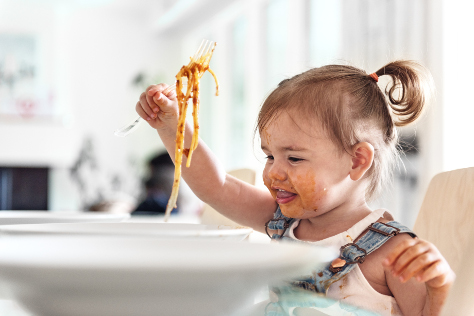Toddler food and sleep: What you need to know
Certain foods can disrupt your toddler’s sleep, here’s the lowdown on foods that help and those that don’t

You’ll know that foods and drinks containing caffeine and sugars can affect you and should be avoided for toddlers, particularly around sleep time, but did you know that foods high in protein can also cause alertness, particularly if eaten alone.
Foods high in fat like chips, crisps or ice-cream should also be avoided because fat takes a long time to digest and will keep the body awake for longer.
The good news is that some foods have a sedating effect on the brain and can actually help your little one feel tired. Having the opposite effect to sugars and caffeine, chemicals are produced in certain foods that promote sleepiness and relaxation. They contain a substance called tryptophan.
It is an amino acid that causes the body to synthesize proteins. It also produces the brain chemical serotonin – and melatonin (essential for sleep) is manufactured from the seratonin.
What food contain high levels of tryptphan?
•Dairy products (some cheeses particularly including Cheddar and Swiss cheeses)
•Nuts (including nut butters)
•Tofu and soy products
•Wheat and oats
•Bananas
•Green leafy vegetables
•Eggs
•Poultry (especially turkey)
For tryptophan foods to have the sleepy effect, they need to be eaten with foods containing healthy, complex carbohydrate foods as the carbohydrates release the insulin, which then helps tryptophan reach the brain and cause tiredness – clever eh?.
Meal ideas to combine the two
• Turkey/chicken/Cheddar or Swiss cheese sandwich
• Whole-wheat pasta with some cheddar cheese grated on top
• An egg sandwich on wholemeal bread
• Tofu with stir-fried vegetables
• Cereal with milk
• Hummus with carrot sticks
If your child is struggling to sleep, introducing these foods might not be the ‘golden ticket’ to sleeping through the night, but being mindful of how food affects sleep may help your child sleep a little more peacefully.